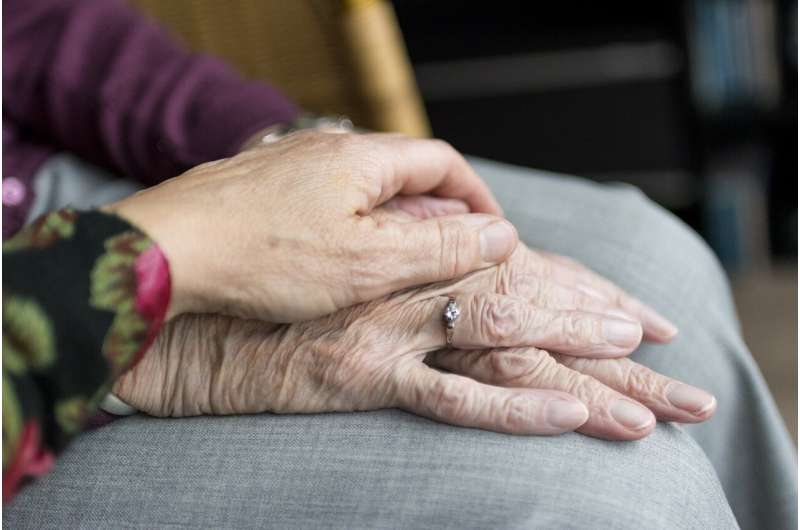This article has been reviewed according to Science X's editorial process and policies. Editors have highlighted the following attributes while ensuring the content's credibility:
fact-checked
trusted source
written by researcher(s)
proofread
Is assisted dying available equally to all in New Zealand?

Just over two years ago, terminally ill New Zealanders were given the right to request a medically assisted death with the End of Life Choice Act. But having assisted dying legally available doesn't mean everyone has the access.
While the law provides the option for people with a terminal illness, it also creates challenges for patients, family, whānau, health practitioners and the health system.
Our ongoing research is looking at how the law has been used since it was enacted in 2021. We have also been looking into access issues, low levels of knowledge in the health sector around assisted dying, and poor public awareness.
The Ministry of Health is required to review the law next year, examining how it is operating and reporting on whether any changes are necessary or desirable.
The review is crucial given the evidence of conscious and unconscious bias within the health care system and its impact on disadvantaged groups.
Regardless of how individuals voted in the 2020 referendum on the End of Life Act, everyone wants to die as well as possible. So the review is important for evaluating how the assisted dying service is influencing the end of life.
Understanding the End of Life Choice Act
The act legalizes assisted dying for people assessed by at least two doctors as meeting all of the eligibility criteria. To be eligible, a person needs to be:
- 18 years or older
- a citizen or permanent resident of NZ
- suffering from a terminal illness that is likely to end the person's life within six months
- in an advanced state of irreversible decline in physical capability
- experiencing unbearable suffering that cannot be relieved in a manner that the person considers tolerable and
- competent to make an informed decision about assisted dying.
In the two years since the act came into force, 1,441 people applied for assisted dying, of which just 565 people had an assisted death. As many as 374 people died while applying, 89 people changed their minds and 118 applications are still underway. Another 295 people did not meet the eligibility criteria.
Is the law working?
The Act has some distinctive safeguards to prevent potential coercion. It bans health professionals from discussing assisted dying unless a person raises it first.
If a person is found eligible, but then loses competency to give their final consent, they cannot have an assisted death. People are ineligible if they apply only because they have a mental illness or disorder, a disability of any kind, or are of advanced age.
In practice, the prohibition on health professionals raising the topic means people might not know the option is available to them, or that they may be eligible. The person may not have the words or the ability to raise it with a health practitioner.
It also means those who have higher literacy and access to resources are more likely to access assisted dying. This raises the question of whether access to information and assisted dying is equally available for all individuals.
During this first stage of research, we spoke with 22 family members and health professionals who have cared for someone undergoing assisted dying.
During our interviews, one family member of someone who lost competency during the process described the need for final consent as "ridiculous."
"When she is unable to respond to be affirmative, if she's already given the consent to the process, why can't the process just proceed? Otherwise, you have to say I want to die earlier than I want to die just to meet your ridiculous regulation."
Others we spoke to expressed similar frustrations and concerns.
Currently, we do not have data about how these safeguards are operating, or data about why people choose assisted dying. Te Whatu Ora reports the demographics of those who applied for assisted dying, but not who completed it.
Between November 2021 and November 2022, 80.8% of people who applied for assisted dying were European/Pākehā and 5.5% were Māori. Just over 55% were female, 75.8% were 65 years or older, and 77% were receiving palliative care at the time of the application. The majority—67.9%—were diagnosed with cancer.
Te Whatu Ora also doesn't report about people's experiences of using the service or being declined.
Their views, and the views of their whānau, families and health care professionals, would greatly inform the future of the service. Likewise, research with Māori and people living with disability or impairment would also greatly benefit the review.
That's why our team is researching the experiences of people across the assisted dying pathway.
Understanding the experience
The next step in our research is to speak to assisted dying service users (both eligible and ineligible), including those living with an impairment, disability, or are Deaf.
We will also be speaking with assisted dying providers, and health care organization leaders and policymakers who are responsible for deciding how assisted dying is practiced at their organization.
The purpose of this research is to gather evidence to inform the first review of the End of Life Choice Act in November 2024. It is important to understand, from a variety of perspectives, if the Act's safeguards are safe and equitable.
Our findings will help to advance the aim of enhancing the service to be safe, accessible, and equitably available to all eligible New Zealanders.
This article is republished from The Conversation under a Creative Commons license. Read the original article.![]()





















